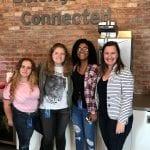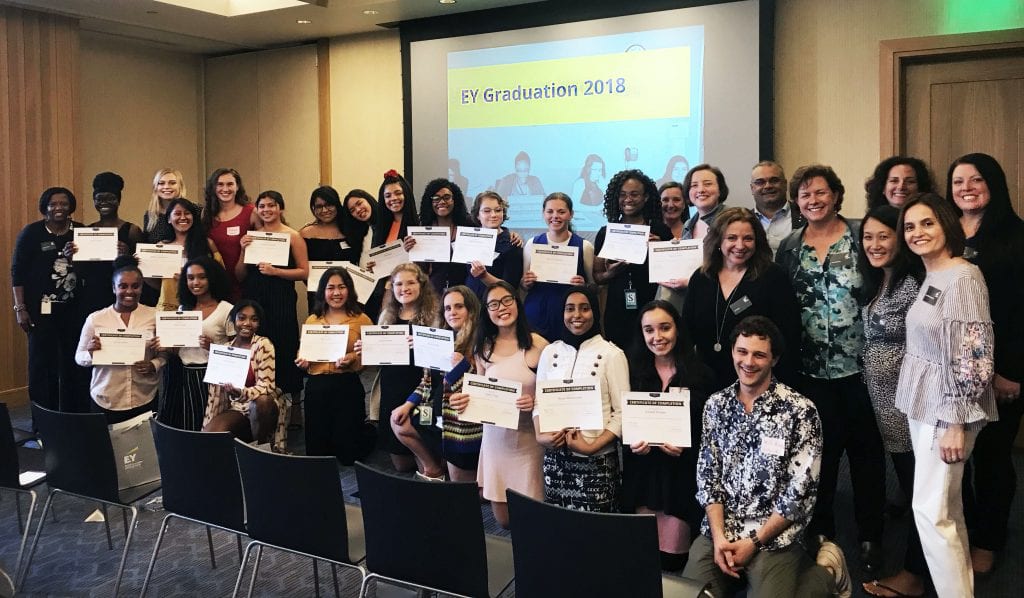 According to the National Center for Women and Information Technology, only 26 percent of professional computing jobs were held by women in 2017.
According to the National Center for Women and Information Technology, only 26 percent of professional computing jobs were held by women in 2017.
As part of their Diversity & Inclusiveness initiative and a mission to provide equal opportunities and close the gender gap in technology, global tax advisory firm, Ernst & Young, and Girls Who Code, a national non-profit organization, have stemmed their efforts to inspire, educate, and equip young women with the computing skills to pursue opportunities and help close the gender gap in STEM careers.
On Aug.16 at the Ernst & Young LLP (EY) wavespace™ in Seattle, a group of young women from across Washington state who were enrolled in the immersive STEM program covering Science, Technology, Engineering and Mathematics held their graduation ceremony. The firm’s wavespace is part of a global network of growth and innovation centers that help clients tap into creative thinking across EY disciplines, experience and industry sectors.
“Computing skills are the most sought-after in the US job market, with demand continuing to grow,” said Amy Brachio, Principal, Ernst & Young LLP and the EY Global and Americas Advisory Risk Leader. “Collaborating with Girls Who Code is another stride in EY’s path to develop a gender equal world and advance women in the field of technology.”
The workshops provided an immersive experience into the concepts currently shaping the technology industry and provide hands-on lessons in text-based coding, LED circuits and machine building.
 What do the grads have to say about the program?
What do the grads have to say about the program?
“Girls Who Code has made me realize that as a woman in tech, I can do anything as good or even better than a man can do. I have learned the importance of sisterhood and supporting other women that are also pursuing computer science, as they support me,” reported new graduate, Cassidy.
Reanna added “Girls Who Code has introduced me into an amazing sisterhood. Through this sisterhood, I found lifelong friends and people who are really supportive. I have met amazing professionals who are inspiring because they are very open about their experience and the hardship they went through.”
What would another of this year’s graduating class say to a prospective candidate?
“I would want to tell girls younger than me to just go for it,” said Brooke. “Try out computer science while you’re young because it’s so new, you have the potential to make a difference in whatever aspect you want to. Don’t be afraid to fail. If you can imagine, you can create it!”
By the end of the 2018 academic year, Girls Who Code will have reached over 90,000 girls in all 50 states and several US territories. To join the movement or learn more, visit girlswhocode.com [24×7]

















